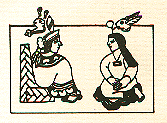 |
P rogram in
L atin
A merican
S tudies
|
| [ Home ] [ Major in International Studies, Minor in LAS ] [ Affiliated Faculty ] [ Upcoming Events ] [ Study Abroad Opportunities ] [ Links ] |
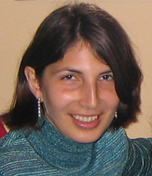 |
Cristina Alcalde is an anthropologist whose work focuses on gender, class, race, resistance, and domestic violence in Peru, and more recently also among Latinos in the U.S. She holds a Ph.D. in Anthropology and an M.A. in Latin American Studies from Indiana University. She has published in the Journal of Latin American and Caribbean Anthropology, Meridians: Feminism, Race, Transnationalism, Latin American Perspectives, andUngendering Civilization: Reinterpreting the Archaeological Record (Pyburn, ed.). She is currently working on a book manuscript tentatively titled, Gender Violence, Poverty, and Resistance in Women’s Lives in Peru, and on a co-edited volume on Peruvian academics’ visions of Peru from their vantage points in the U.S. |
| |
Marco A. Castaneda (Ph.D., Washington University). Economics. Major Areas of Academic Interest: Economic theory, industrial organization, game theory. Selected Publications: "The Organization of Production in a Competitive Economy" under review. "The Hold-up Problem in a Repeated Relationship," under review.
|
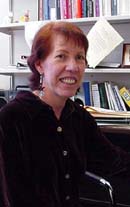 |
Francie Chassen-López (PhD., Universidad Autónoma de México), History. Areas of Specialization: Mexican History, History of Labor Movements in Mexico. Books: Lombardo Toledano y el movimiento obrero mexicano, 1917-1940 (1977), co-author, La Revolución en Oaxaca 1900-1930 (1985, 2nd ed. 1993), and Diccionario historico de la Revolucion en Oaxaca (1992, 1997-2nd ed.). Short books: Regiones y ferrocarriles en la Oaxaca porfirista (1990) and Cafe y capitalismo: el proceso de transición en Colombia, 1880-1930 (1982). Recent articles: “Maderismo or Mixtec Empire? Class and Ethnicity in the Mexican Revolution (Costa Chica of Oaxaca, 1911)” ; “From Casa to Calle: Latin American Women Transforming Patriarchal Spaces,” and Lecturas históricas de Oaxaca, Vols. III and IV. Former PLAS Director (1996-2000) |
 |
Susan Carvalho Chumney (PhD, U of Virginia). Hispanic Studies. Areas of Specialization. The Latin American novel of the 'boom' and post-boom; contemporary women's fiction; Spanish American theater; Latino literature and cultural identity. Book in progress on Space & Place in the Contemporary Spanish American novel. Articles on Gabriel García Márquez, Isabel Allende, Pablo Neruda, the modernista novel, journalism and literature. |
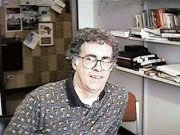 |
Charlie Davis (PhD, U of Kentucky). Political Science. Area of Specialization: Latin American politics, U.S.-- Latin American relations and comparative political behavior. His secondary fields include American political thought and Appalachian politics. Books: Working-Class Mobilization and Political Control: Venezuela and Mexico (1989); Kenneth M. Coleman and Charles L. Davis, Culture and Politics in Mexico (Ann Arbor: Center for Political Studies/Institute for Social Research, University of Michigan, 1988). He has published in the American Journal of Political Science, Journal of Politics, Social Science Quarterly, Comparative Political Studies, Journal of Political and Military Sociology, Society, and Western Political Quarterly. |
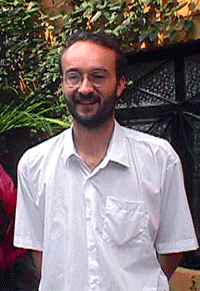 |
Oliver Fröhling (Universidad Autónoma de Oaxaca). Geography. (Director: Oaxaca Program). With a background in environmental studies and GIS, he is at the moment feverishly working on finishing his Ph.D. dissertation on Indigenous Autonomy in Mexico, one of the important political issues in Mexico ever since the 1994 Uprising in Chiapas. In the meantime, he has gotten involved in a variety of other activities, like working with local NGOs involved in issues of Ecology and Indigenous rights as well as pursuing an affiliation with the Universidad Autónoma "Benito Juárez" de Oaxaca. He is currently developing the geography summer program in Oaxaca in conjunction with the Centro Intercultural de Encuentros y Dialogo, where he hopes to show to Kentucky students the beauty of this region that has captured his soul. Academically, he maintains his interests in political ecology, indigenous people, GIS and Social Theory. See more about the summer program in Oaxaca, Mexico. |
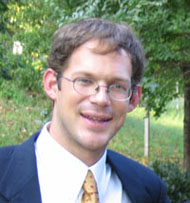 |
Scott Hutson, Ph.D. Assistant Professor. I came to archaeology from the broadly-based field of Latin American Studies. I am interested in a variety of topics related to human subjectivity. On the one hand, humans are subjects: active beings that have the agency to transform their position in society. On the other hand, humans cannot become acting subjects without being subjected to a messy and often unvoiced constellation of social norms, mannerisms, and expectations. These ideas may sound rather distant from archaeology. However, these differences are key to understanding the formation of diverse interest groups whose conflicting agendas form a premiere object of archaeological research: long term social change. Since I believe we can study difference by looking at daily practices in their spatial contexts, and since researchers have developed a battery of methods (paleoethnobotany, soil chemistry, use wear analysis, GIS, etc.) for recovering traces of practice and understanding space, archaeologists can get at subjectivity and social change in the past. |
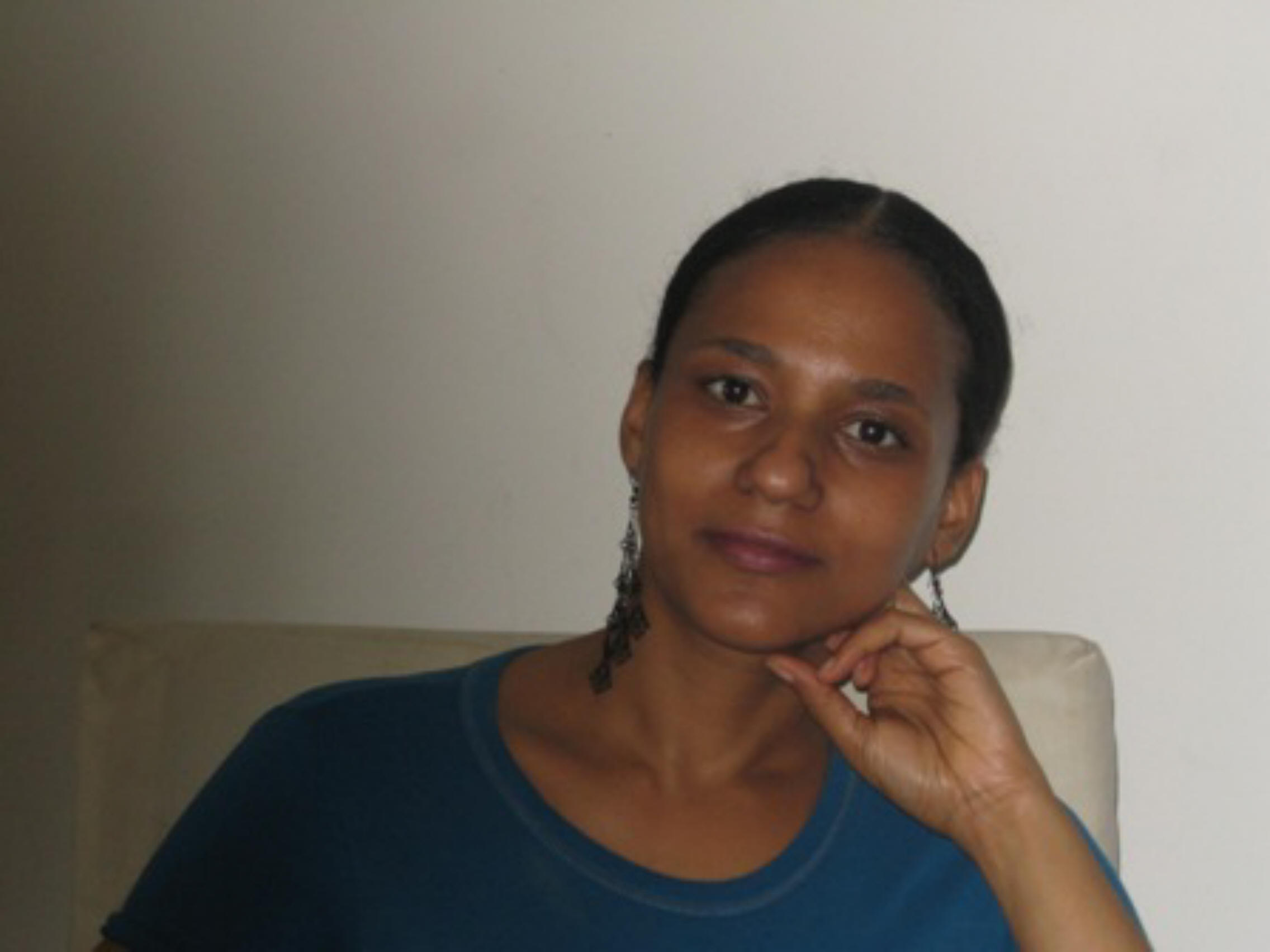 |
Ana S.Q. Liberato was born and raised in the Dominican Republic. She received her bachelor’s degree in statistics from the Autonomous University of Santo Domingo in June 1996, and her master’s in Latin American Studies and doctoral degree in sociology from the University of Florida in 2001 and 2005 respectively. Ana’s main sociological interest is in the study of race and ethnicity, gender, health, migration and political attitudes. Below see a list of Ana’s publications: |
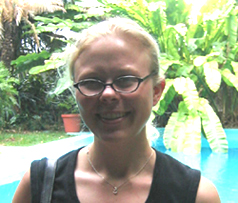 |
Sarah Lyon, Ph.D. Assistant Professor. I am currently investigating the gendered dimensions of fair trade & ethical market participation through in-depth research among North American female consumers and case studies of producer groups in Latin America. Fair trade has prioritized gender equality. However, in practice this mandate is underdeveloped. While fair trade publicity materials highlight the steps producer groups have taken in order to foster gender equality, women's projects are largely focused on non-productive activities outside the export agricultural sector. At the same time, the Northern fair trade consumer market is dominated by middle to upper class women. My work explores the convergences (and contradictions) between the female producers and female consumers constituting fair trade commodity networks.
|
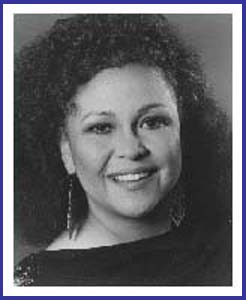 |
Noemí Lugo (DMA University of Colorado-Boulder). Music. Areas of Specialization: Vocal Music of Latin America. Former PLAS Director (2002-2004). |
 |
David Moore (JD, International Law, Brigham Young U). International Law, Human Rights. Assistant Professor of Law, joined the College of Law faculty in 2003. Professor Moore received his B.A. from Brigham Young University and received his J.D. from Brigham Young University Law School in 1996, where he was Editor-in-Chief of the Brigham Young University Law Review. From 1996 to 2000, Professor Moore worked as a trial attorney for the U.S. Department of Justice, Civil Division, defending cases arising under the First and Fifth Amendments, the Freedom of Information Act, the Railway Labor Act, and the Equal Credit Opportunity Act. He then clerked for the Honorable Samuel A. Alito, Jr. of the U.S. Court of Appeals for the Third Circuit. Most recently, Professor Moore researched and taught at the University of Chicago Law School as an Olin Fellow. Professor Moore's scholarship focuses on international law and international human rights. |
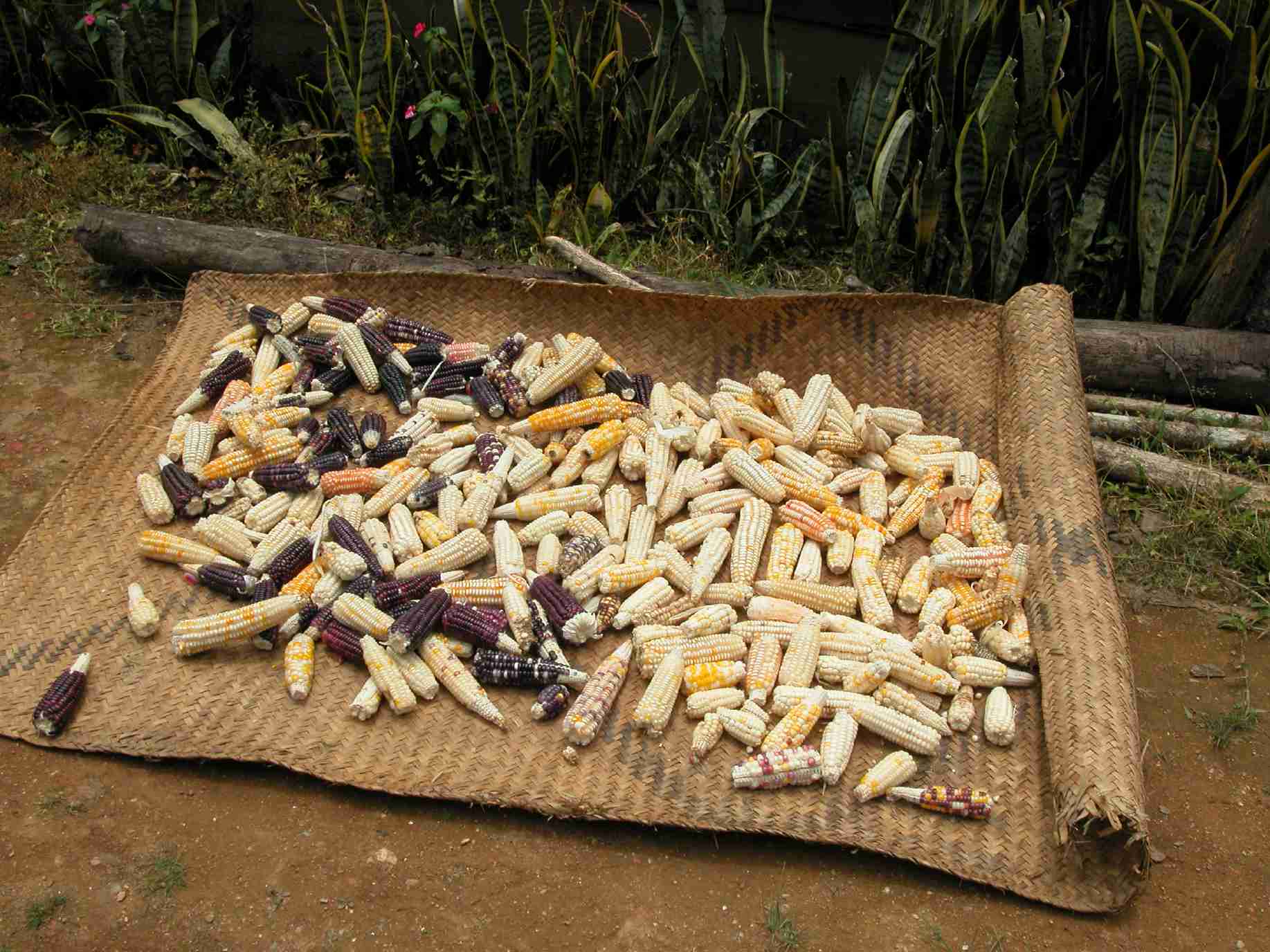 |
Tad Mutersbaugh (PhD University of California-Berkeley). Associate Prof, Geography. Dr. Mutersbaugh’s teaching and research interests relate to ecologically sustainable and economically supportable rural development in Mexico. His current research is strongly field-based at sites in Oaxaca where he works with coffee farmers and their families, local political officials, cooperative officials, and others involved in the coffee production process locally and regionally. One of his central research questions relates to the manner in which rural families strategically restructure their spatiality of work within their villages in response to the demands of the international coffee economy -- particularly the requirements of fairtrade and organic production. |
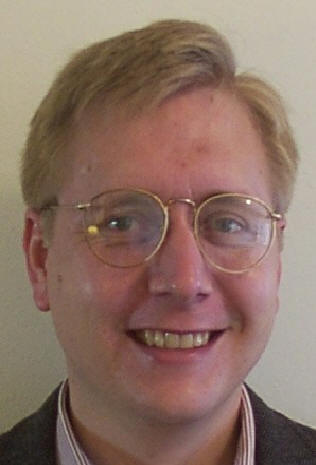 |
Erik Myrup. A specialist on the history of colonial Latin America, Professor Myrup’s research focuses on Brazil and the larger Luso-Brazilian world. His dissertation tells the story of the Overseas Council, a powerful metropolitan tribunal that governed Portugal’s seaborne empire during the seventeenth and eighteenth centuries. In addition to revising his thesis for publication, he is currently co-editing a volume of articles on colonial Brazil with Stuart Schwartz (forthcoming from EDUSC Press in São Paulo). His articles and reviews have appeared in such places as Portuguese Studies and the Hispanic American Historical Review, and he also previously published a number of short children’s stories in Taiwan. A former Fulbright Fellow in Portugal, Professor Myrup has held visiting fellowships at Portugal’s National Library and National Archive, as well as at the Beinecke Rare Book and Manuscript Library at Yale. In addition to Latin America, his teaching interests include slavery and race in the early modern South Atlantic, U.S.-Latin American relations, the Mexican Revolution, and cross-cultural encounters in the early modern world. |
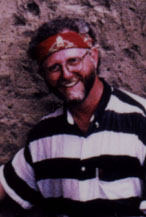 |
Chris Pool (PhD., Tulane University). Anthropology. Areas of Specialization: Mesoamerican Archaeology, complex societies, political economy, cultural ecology, ceramic analysis. A native of Natchez, Mississippi, Associate Professor Christopher A. Pool has conducted archaeological fieldwork in southern Veracruz state, Mexico, since 1983, and he has directed NSF-sponsored research at the important Olmec and epi-Olmec site of Tres Zapotes, Veracruz since 1995. His research centers on preindustrial craft production and the role of political economy in the development of complex societies. His most recent publications include the monograph, "Political Economy and Settlement Archaeology at Tres Zapotes, Veracruz, Mexico" (UCLA) He is currently writing a book on the Olmec culture for Cambridge University Press and is co-editing a book on Classic Veracruz Culture for Dumbarton Oaks. Former PLAS Director (2000-2002). |
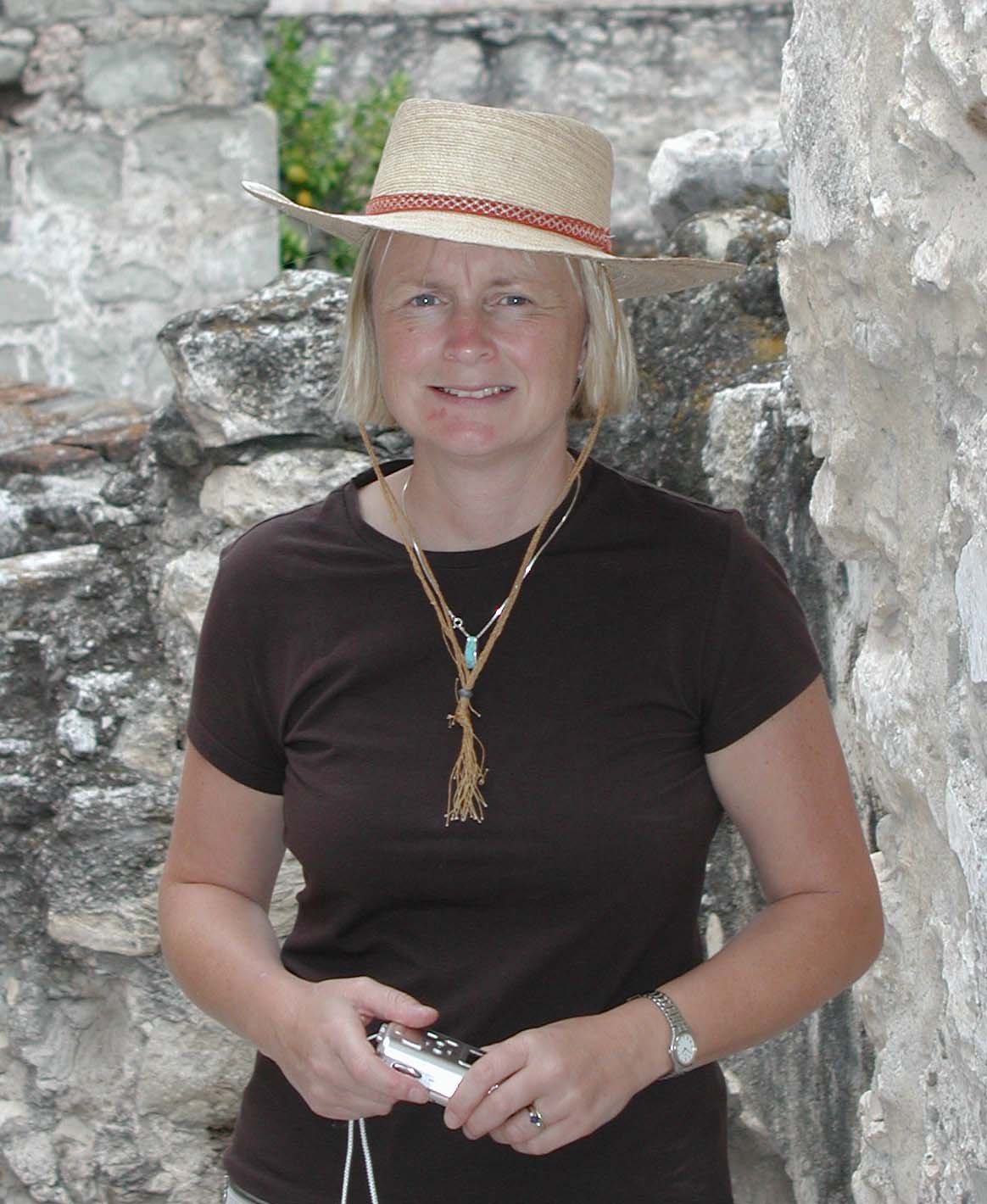 |
Sue Roberts (PhD., Syracuse), Assoc. Prof., Geography. Areas of Specialization: Shifting geographies of the world economy. Her work intersects geographical work in both political-economy and development. She continues to do research on the international financial system -- especially how it is (or is not) regulated, but has also developed an interest in how the "global" may be theorized. She has recently investigated discourses of globalization and, in a related project, critically examined representations of the global in print advertisements. Sue is also interested in how processes of globalization intersect with issues of (gendered) identity across geographical scales (connecting bodies to the globe, for example). Her Caribbean interests continue with an investigation of development strategies based on tax-treaties with the U.S. Sue's interests are carried through in her teaching -- whether in one of the several undergraduate courses she regularly teaches or in her graduate seminars. |
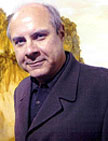 |
Enrico Mario Santí (Ph.D., Yale), William T. Bryan Professor of Hispanic Studies. Areas of specialization: 19th & 20th century Spanish American Literature, Modern Poetry, Critical Theory and Cultural Studies. Cuban and Caribbean Culture. Books: Pablo Neruda: The Poetics of Prophecy, Escritura y tradición, Pensar a José Martí, El acto de las palabras: Estudios y diálogos con Octavio Paz, Por una politeratura, Bienes del siglo, Ciphers of History. Editions of Neruda, Paz, Cabrera Infante, Ortiz. Interests: Post-colonial studies, gender theory, intellectual history, modern painting. Santí serves on editorial boards of a dozen scholarly journals, among them Hispanic Review, the flagship of the field, and on the Research Council of the Center for a Free Cuba, a Washington, D.C. think tank. In addition to a Guggenheim, Santí´s research has been supported over the years by fellowships from The Woodrow Wilson Center for Scholars, the American Council of Learned Societies, the National Endowment for the Humanities, and the American Philosophical Society. For years he was one of the four rotating editors of the journal Cuban Studies . |
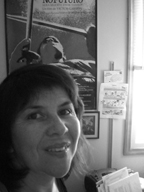 |
Juana Suarez
Assist. Prof. of Spanish
Patterson Office Tower 1135
Phone: 257-7102
Email: juana.suarez@uky.edu |
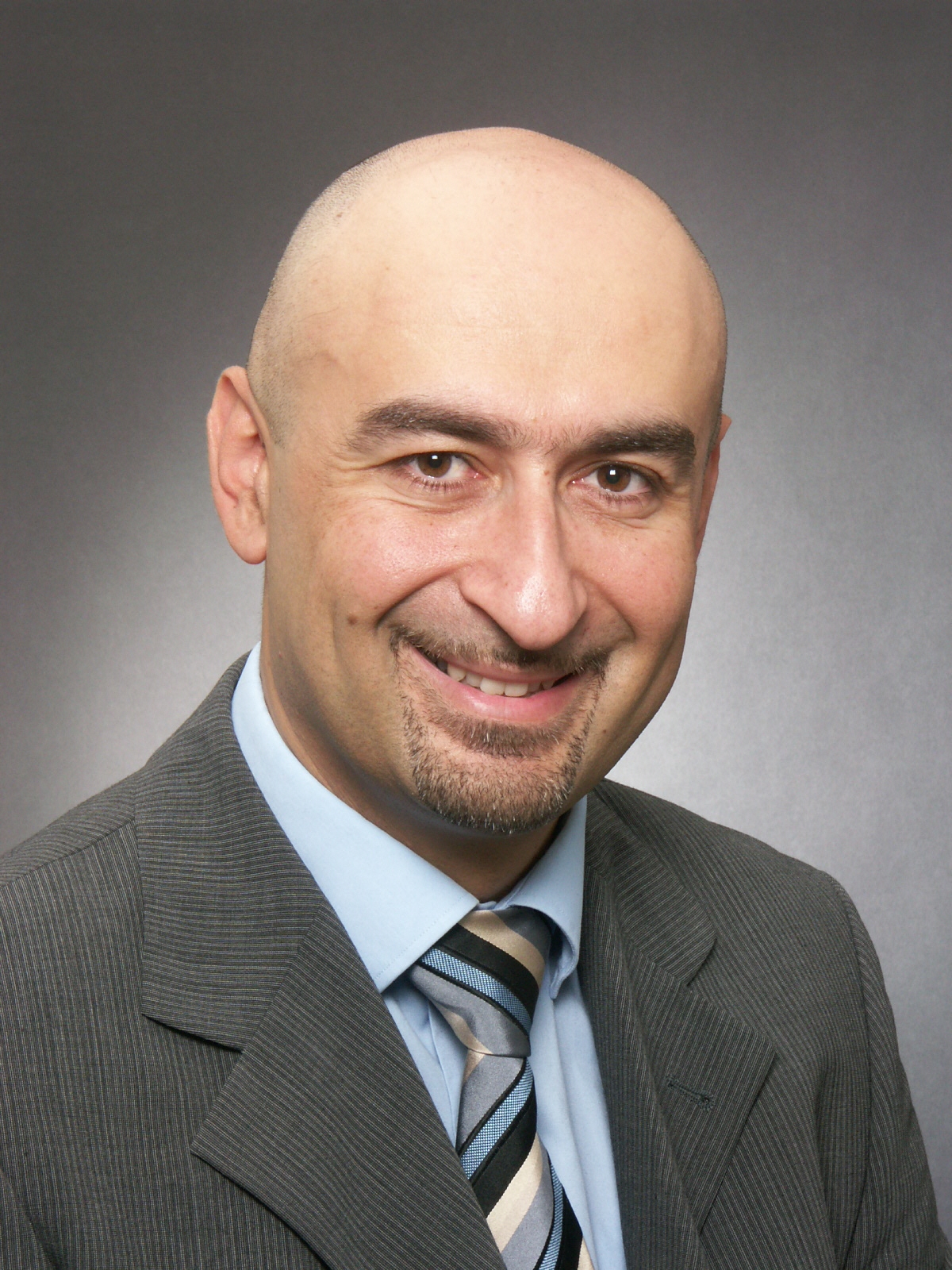 |
Haralambos Symeonidis
Assist. Prof. of Spanish Linguistics
Patterson Office Tower 1141
Phone: 257-7094
haralambos.symeonidis@uky.edu |
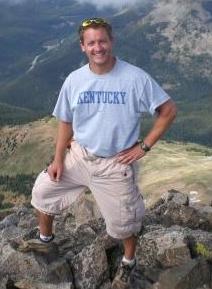 |
Clayton Thyne is an Assistant Professor in Political Science. He received his Ph.D. from the University of Iowa in 2007. His dissertation examines how international actors affect the onset, duration and outcome of civil wars. His work has been published in a number of venues, including the Journal of Conflict Resolution, International Studies Quarterly, and the Journal of Peace Research. Dr. Thyne continues to study interstate conflicts, civil conflicts, and has secondary interests in coup d’états, international education policy, and democratization. In his spare time, Clayton enjoys hiking in the scenic Kentucky wilderness, rooting for the ‘Cats, and (of course) attending all the horse races that time will allow. |















